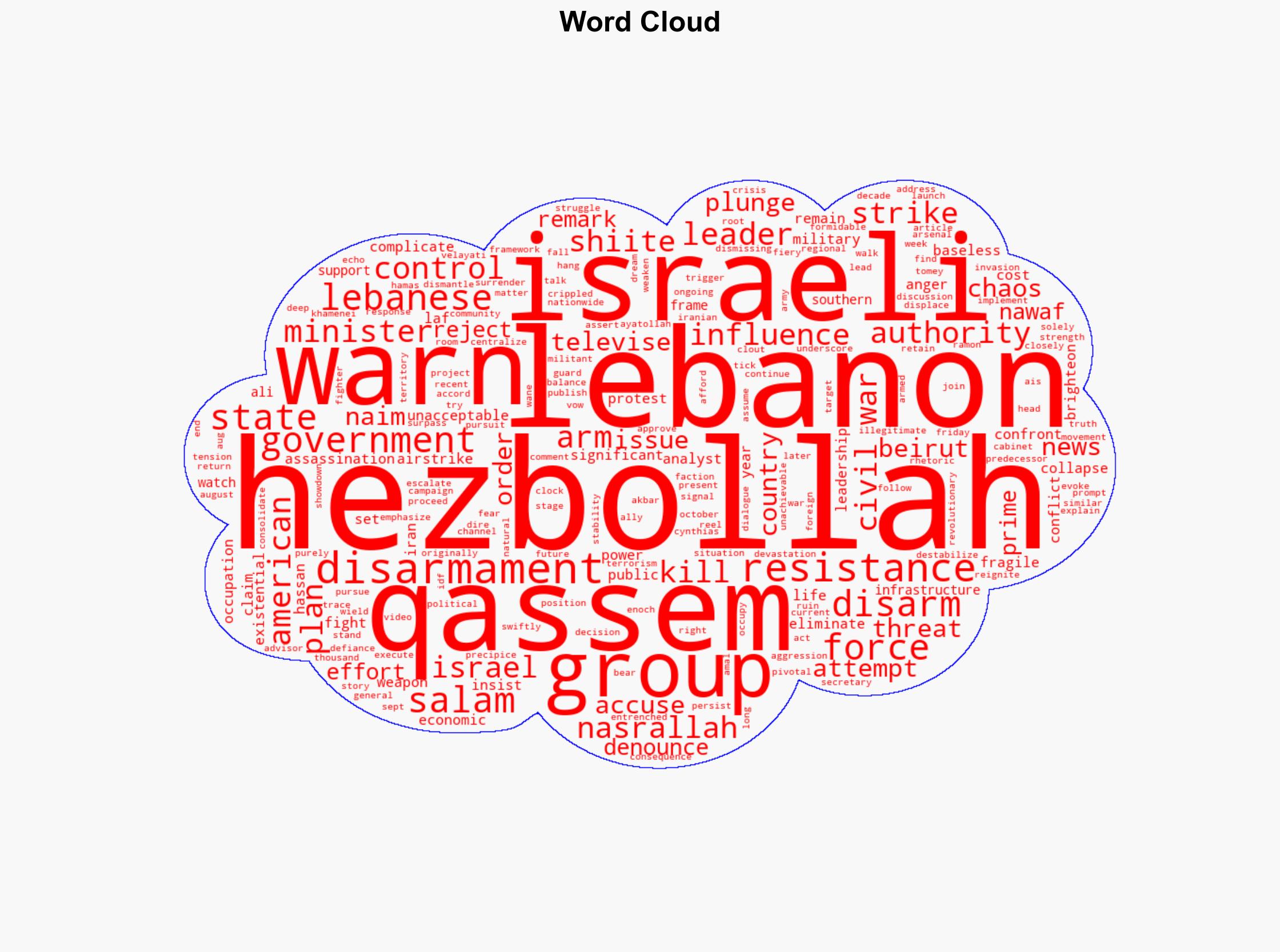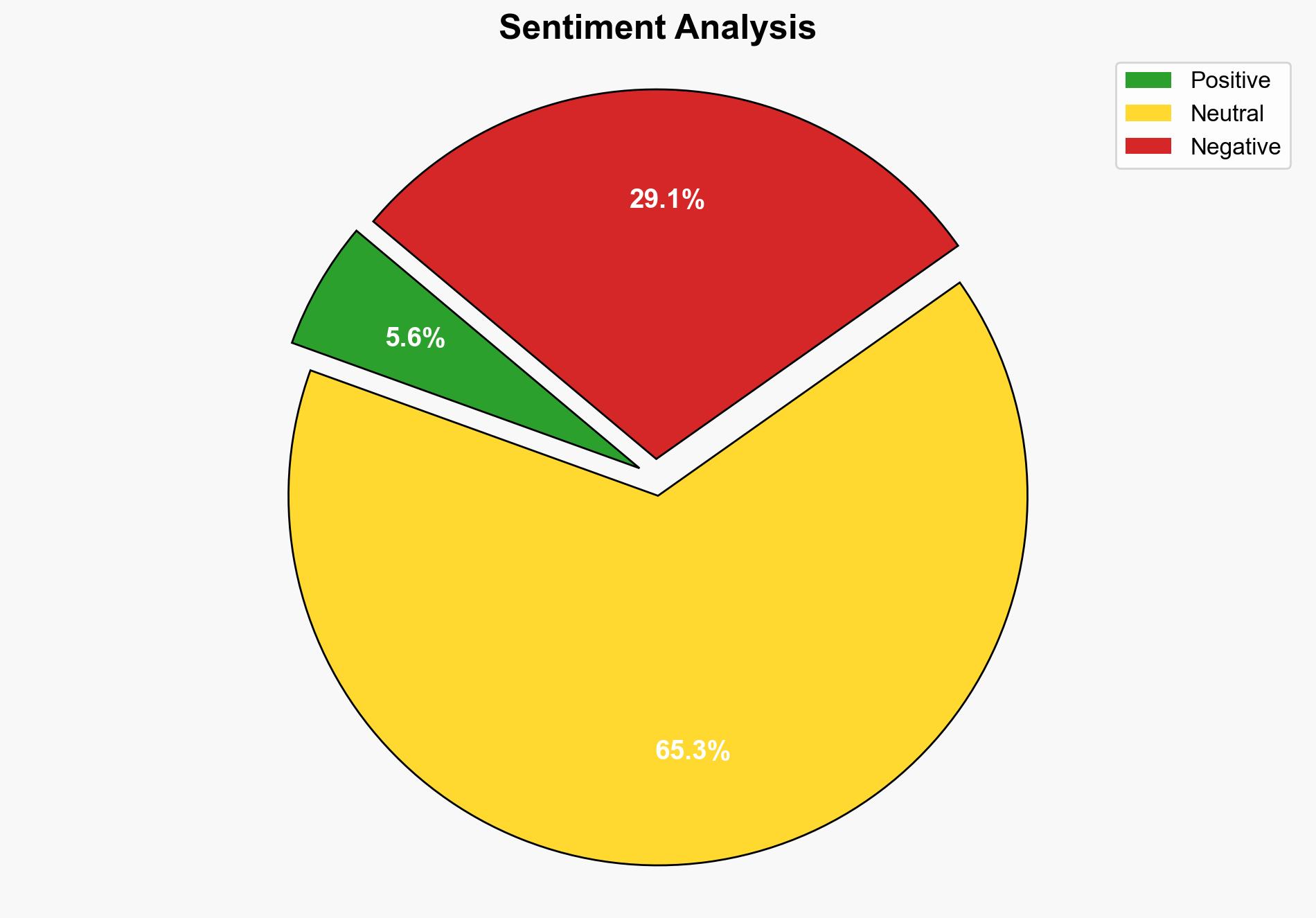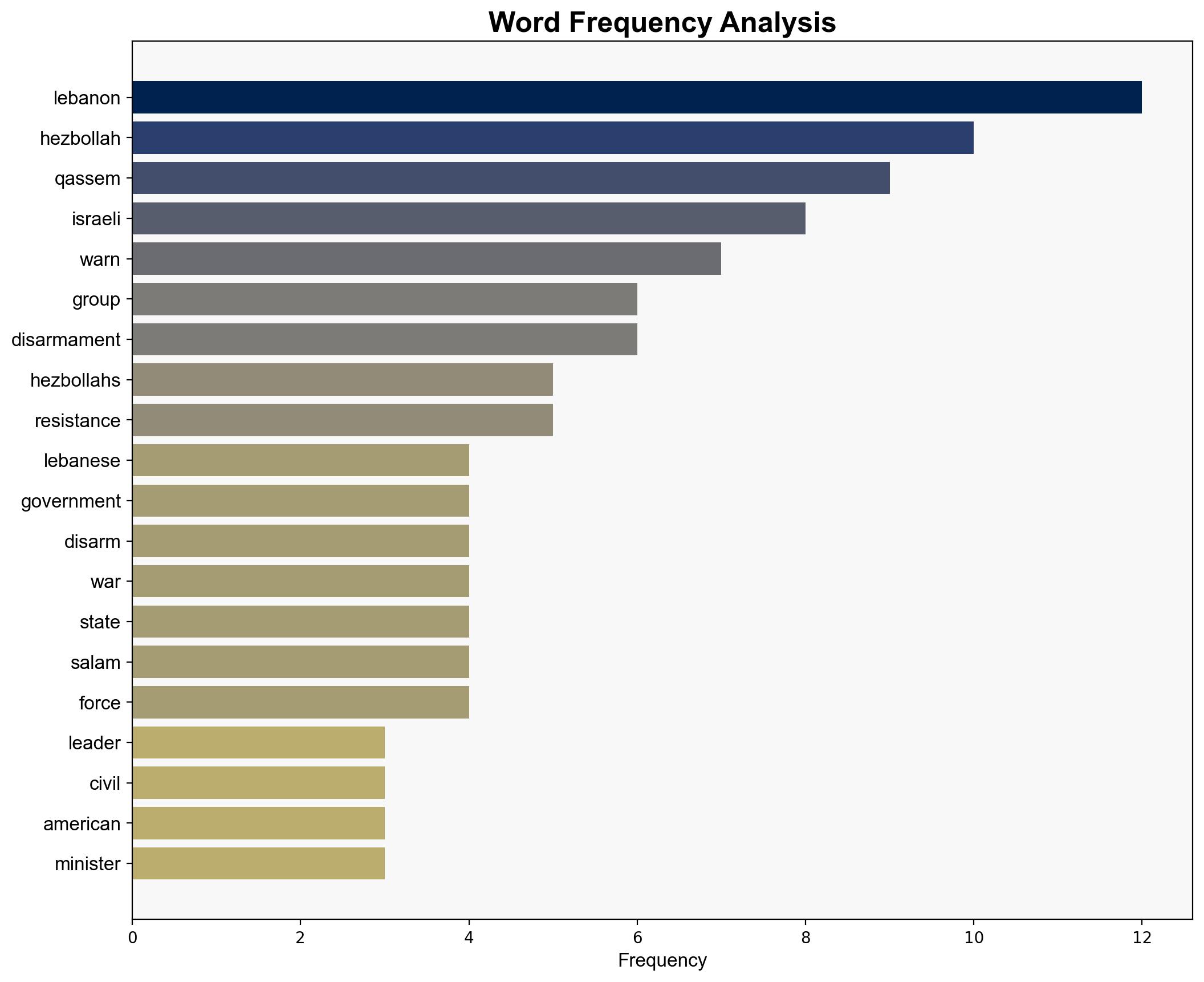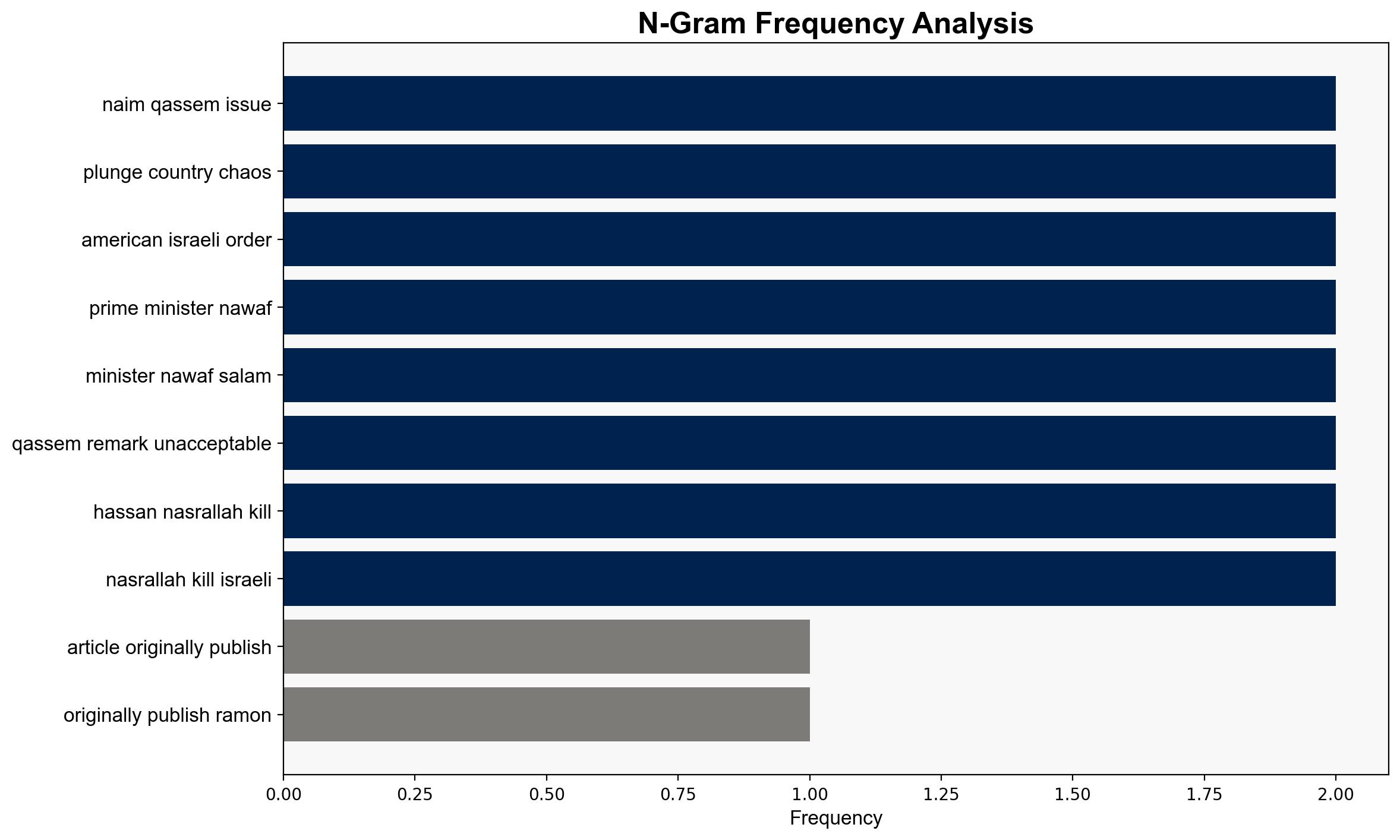Hezbollah Warns Lebanon Will Have No Life If Group Is Disarmed Raising Fears of Civil War – Shtfplan.com
Published on: 2025-08-21
Intelligence Report: Hezbollah Warns Lebanon Will Have No Life If Group Is Disarmed Raising Fears of Civil War – Shtfplan.com
1. BLUF (Bottom Line Up Front)
The strategic judgment is that the situation in Lebanon is precarious, with a high risk of civil conflict if Hezbollah is forcibly disarmed. The most supported hypothesis is that Hezbollah’s rhetoric and actions are aimed at maintaining its power and deterring disarmament efforts, potentially escalating tensions. Confidence level: Moderate. Recommended action: Engage in diplomatic dialogue to de-escalate tensions and explore alternative security arrangements that address both state sovereignty and Hezbollah’s security concerns.
2. Competing Hypotheses
1. **Hezbollah’s Rhetoric as a Deterrent:** Hezbollah’s warnings are primarily aimed at deterring the Lebanese government and international actors from pursuing disarmament, leveraging the fear of civil war to maintain its military and political influence.
2. **Genuine Preparation for Conflict:** Hezbollah is genuinely preparing for potential conflict, interpreting disarmament efforts as an existential threat, and mobilizing its base for a possible armed confrontation.
Using ACH 2.0, the first hypothesis is better supported by the evidence, including Hezbollah’s historical use of rhetoric to influence political outcomes and the group’s current military capabilities that make immediate conflict less likely.
3. Key Assumptions and Red Flags
– **Assumptions:** It is assumed that Hezbollah’s statements are primarily strategic rather than indicative of immediate intent to engage in conflict. Another assumption is that the Lebanese government has the capacity to enforce disarmament.
– **Red Flags:** The potential for misinterpretation of Hezbollah’s intentions by the Lebanese government or international actors. The lack of clear communication channels between Hezbollah and the Lebanese government increases the risk of escalation.
– **Blind Spots:** The internal dynamics within Hezbollah and the extent of Iran’s influence on its decision-making are not fully understood.
4. Implications and Strategic Risks
– **Economic Impact:** Lebanon’s fragile economy could further deteriorate if conflict arises, exacerbating humanitarian issues.
– **Geopolitical Risks:** Increased tensions could draw in regional actors, complicating the security landscape in the Middle East.
– **Psychological Impact:** The threat of civil war could lead to increased emigration and societal fragmentation within Lebanon.
5. Recommendations and Outlook
- Facilitate dialogue between Hezbollah and the Lebanese government to explore mutually acceptable security arrangements.
- Engage regional powers to mediate and prevent external escalation.
- Scenario Projections:
- **Best Case:** Successful negotiation leads to a phased disarmament plan with international oversight.
- **Worst Case:** Breakdown in talks leads to armed conflict, destabilizing Lebanon and the region.
- **Most Likely:** Continued stalemate with sporadic tensions and no immediate resolution.
6. Key Individuals and Entities
– Naim Qassem
– Nawaf Salam
– Hassan Nasrallah (deceased)
7. Thematic Tags
national security threats, regional stability, conflict prevention, Middle East politics





